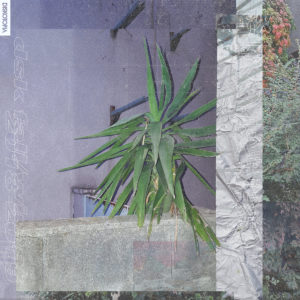Sometimes you just need a blast of something familiar. Dronjo Kept By 4’s “Radio Her” is indie-pop simplicity at its most stripped down — what starts out as downright sloppy quickly turns in to a nifty guitar dash that just keeps on plunging ahead. And overhead comes some head-down singing, adding extra texture to what quickly becomes a number more about the up-tempo race ahead than anything else. Maybe not great for everyday, but working right now. Listen above.
Diskotopia Shares DSK F/W 2018-2019 Free Compilation Featuring Foodman, Greeen Linez And More
Diskotopia’s latest compilation feels a bit chillier than previous offerings from the Tokyo label, with more moments of unease cropping up alongside the usual body-moving flow. These aren’t new moods for anyone associated with the collective, but DSK F/W 2018-2019 Free Compilation comes off as more fitting for the coldest stretch of the years than previous installments in this series. Maybe that can be attributed to opener “Dawn Without Red” by Greeen Linez, a project that previously has dabbled in a re-imagining of glitzed-out city pop soaked in summer vibes. But here the track feels like its thawing out, moving at a slower tempo and placing more of an emphasis on a melody that slowly revelas all its beauty. The same vibe appears on Foodman’s glassy “Hitori Futari” and even on the high-stepper “Cake” from Submerse, which still struts in no rush and lets plenty of space in.
Alongside this feeling is a general wooziness running through tracks here, like stumbling out of bed a little too early and feeling discombobulated. BD1982’s “Sailing Towers” hides muffled singing over layers of other noises, including distortion, while A Taut Line’s “Guidance Light” sounds faded, a familiar drive slowly vanishing to time. Even more outright energetic numbers from Silvestre and Yuzi Zapping feature moments of sounds skipping, a slight disruption in moments of release. Diskotopia remains ever changing, but solid as ever. Get it here, or listen below.
New Haretokidoki: “Touch Me [Straight Run]”
The duo of Brinq and Misatsun delivered a late-year gem with “Kiss Me,” a sparkling dance-pop number channeling late ’80s idol numbers that managed to be catchy enough to avoid any potential nostalgia pitfalls. “Touch Me [Straight Run]” serves as the follow up, and delivers a slightly more understated, still pretty twinkling bit of pop. The tempo moves at a more relaxed pace, at least until the pair ratchet everything up for the hook, a buzzing centerpiece loaded up with sing-a-long lyrics and sputtering drum beats. The thematic focus stays pretty much in line with “Kiss Me” — it’s about capturing a certain moment of anticipation, the heartbeat before something actually happens — but whereas the prior number treats it like a climax, “Touch Me” goes for something a little cooler. But with the same nervousness coming through. Listen above.
New Abelest: Kenkou
Kenkou functions not just as a bubbling and playful set of pop, but as a mini-celebration of Fukuoka. Producer Abelest hails from the city, and two of the three guests joining them on this release via Maltine Records also call the Western Japanese hub home. And they come through with some fresh ideas on busy dance-pop. Mastarrja jumps on “Shokuji” to contribute some warped vocals over music that moves from strobed-out to syrupy and accented with strings, every busy detail falling into just the right place. “Suimin” featuring Takeshi Fuwa starts jarring enough — a sample of Ronald Reagan speaking at the Berlin Wall, OK? — before flipping to a similarly fizzy but slightly less crowded beat giving the guest room to stroll over. Even when a non-Kyushu voice enters on the title track — courtesy of Shizuoka’s Yukichikasaku /men — the end result if Abelest and company turning what sounds like a jarring and clanging mix of sounds into something approaching pop bliss. Get it here.
New Fuji Chao: “Bedtown No Uta”
Bedtowns — the places existing just outside of major cities, places that exist for workers to return to after a long day at the office, what you might call the suburbs — have been a point of fascination for musicians in Japan. Probably because so many of them grew up in said places, and they offer a drastically different image of life in Japan than the shiny, shiny buzz of a place like Tokyo. Fuji Chao’s latest is a list of what life in a bedtown consists of, including references to the soft serve they sell at McDonald’s and details of banks. It’s all set over a simple, bouncy beat interrupted by aching violin swells and delivered in a sing-speak monotone apt for a description of what hum-drum life in a bedtown is. A simple and direct expression of common life. Listen above.


